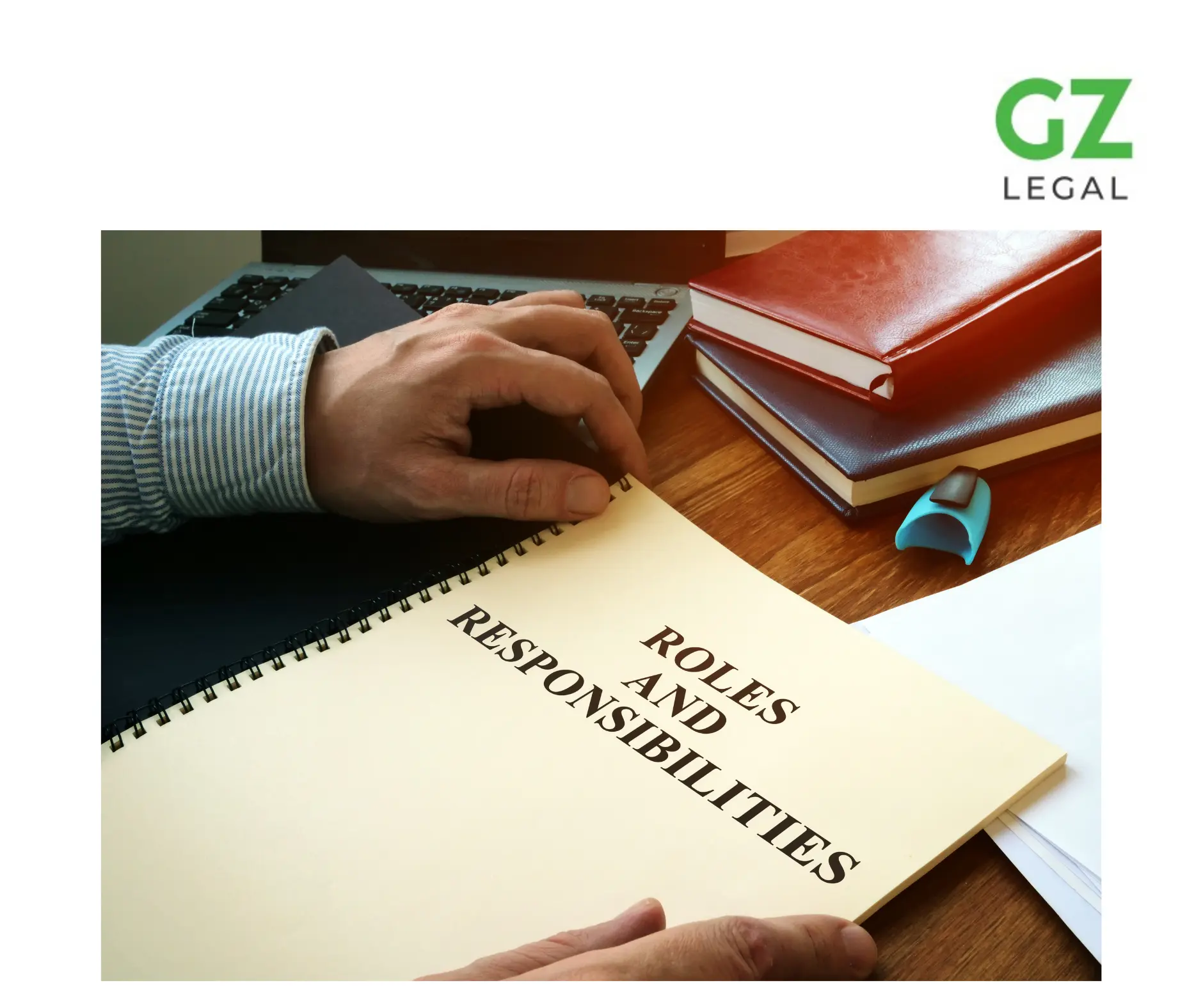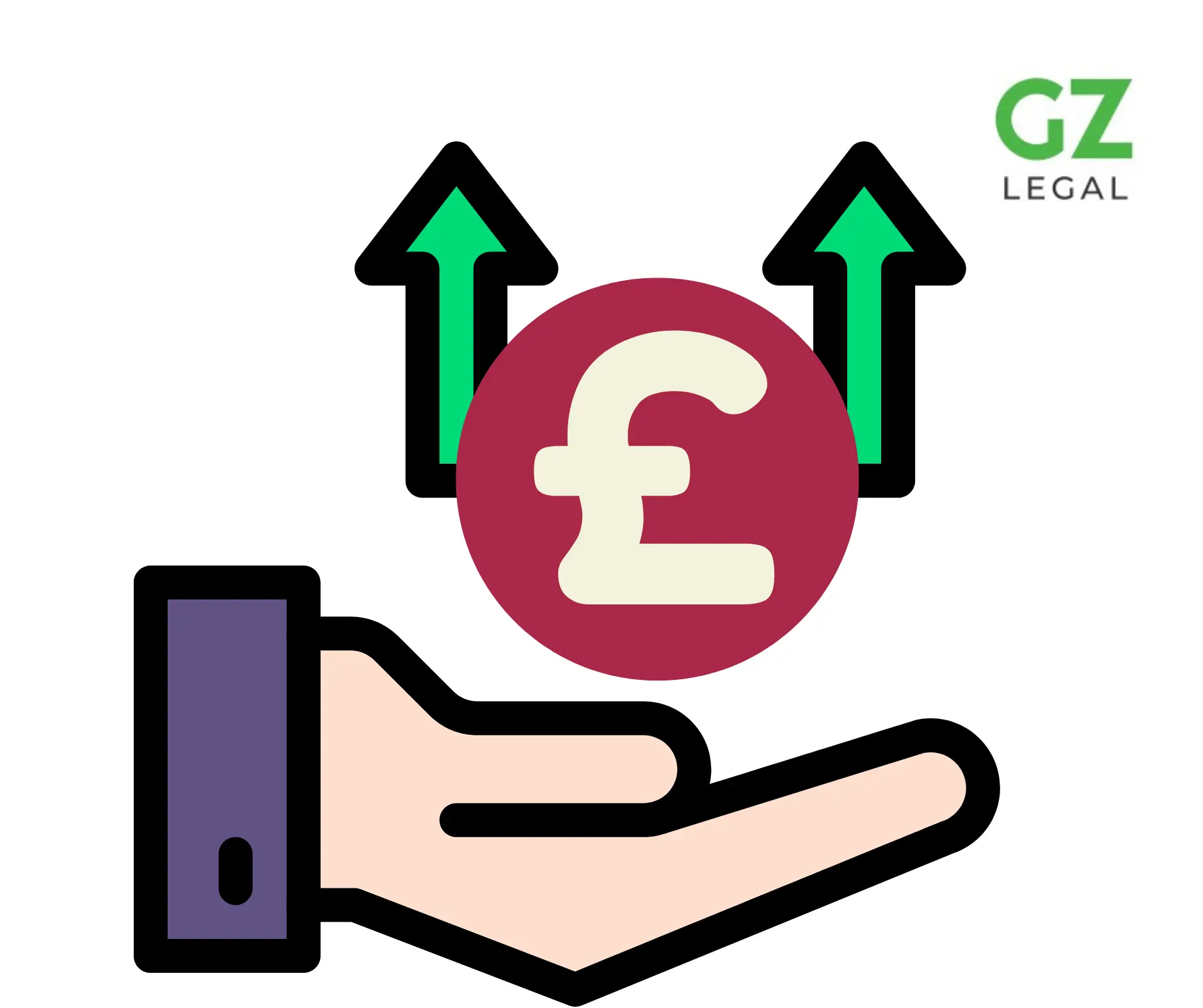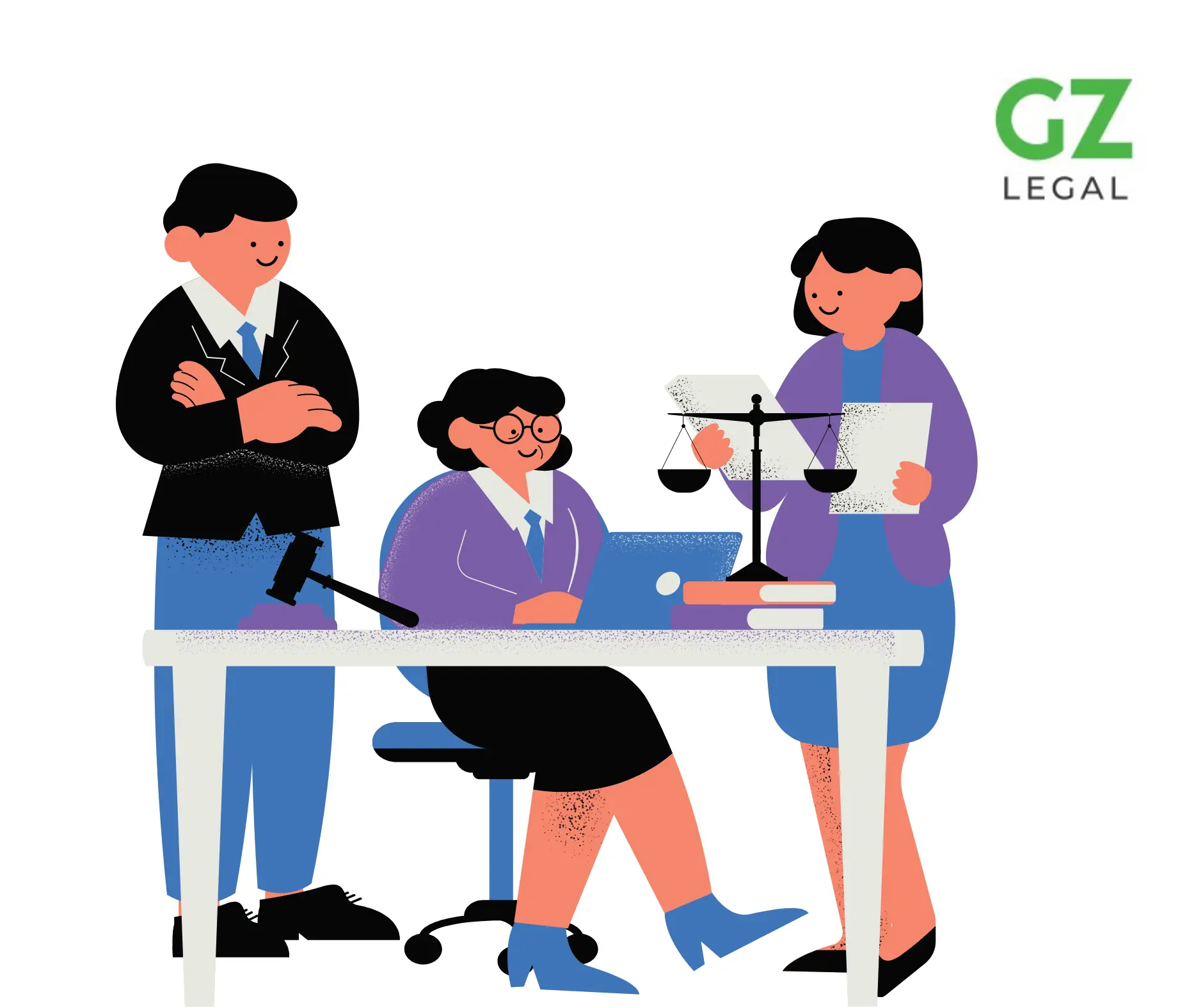Malcolm ZoppiSun Oct 15 2023
How Much Do Solicitors Charge for a Commercial Lease UK: A Concise Overview
Solicitors play a vital role in securing a commercial lease and advising on legal matters. Learn more!
How Much Do Solicitors Charge for a Commercial Lease UK: A Concise Overview

Navigating the process of obtaining a commercial lease in the UK can be complex, especially when it comes to understanding the costs involved. Solicitors play a crucial role in making sure your lease agreements are sound and accurately represent your interests. Knowing what to anticipate in terms of legal costs and fees can help you make informed decisions when entering a commercial lease agreement.
Solicitors charge for a variety of tasks involved in securing a commercial lease, including negotiating the terms of the lease, advising on legal matters, and ensuring that the final document accurately reflects your interests. Factors that can impact the fees include the lease’s value, term length, and complexity, as well as the experience and expertise of the solicitor handling your case. Keep in mind that solicitors typically offer different levels of service, and the costs can vary widely depending on the firm and the specific support you require.
Key Takeaways
- Solicitors play a vital role in securing a commercial lease and advising on legal matters
- Costs can vary depending on the lease’s value, term length, complexity, and solicitor’s experience
- It’s essential to understand the services offered and fees involved to make informed decisions.
Understanding a Commercial Lease
A commercial lease is a legally binding contract between a tenant and a landlord, granting the tenant the right to use a property for commercial or business purposes. In this agreement, both parties have outlined responsibilities and obligations, ensuring a clear understanding of their respective roles in negotiating commercial leases.
When entering a commercial lease, it’s crucial to familiarise yourself with the leasehold properties’ terms and conditions. As a tenant, you’ll need to negotiate these terms with your prospective landlord before signing the lease. Some key aspects to consider include the length of the lease, the amount of rent payable, rent review provisions, and any additional costs involved, such as service charges or insurance.
It’s essential to seek legal advice before entering a commercial lease, as a solicitor can help you navigate the complex terms and ensure your interests are protected. Legal fees for a commercial lease in the UK typically range from £1,500 to £2,000, excluding VAT. Additional expenses, such as Land Registry registration fees and Stamp Duty Land Tax (SDLT), may also apply.
In a commercial lease, the landlord is generally responsible for the property’s structural maintenance and repairs, while the tenant is responsible for internal upkeep and any alterations required for their business. It is crucial to clarify these responsibilities in the lease to avoid disputes and unexpected costs later on.
Rent payment is a crucial aspect of any commercial lease. You’ll need to agree on the rent amount, the payment frequency, and any provisions for rent reviews with your landlord. Rent could be subject to negotiation depending on the property’s location, size, and demand in the market. It’s also essential to understand how rent arrears and late payment penalties are managed to avoid any issues during the lease term.
Overall, entering a commercial lease is a significant commitment for both the tenant and the landlord. By fully understanding the terms, obligations, and responsibilities involved, you’ll be better prepared to navigate the leasing process and protect your interests in the long run.
Roles and Responsibilities of Solicitors

Solicitors play a crucial role in the process of finalising a commercial lease in the UK. They provide essential legal assistance, ensuring that your interests are protected throughout the transaction. You can count on their knowledgeable, neutral, and clear advice about the lease terms, responsibilities and potential risks.
When you engage a solicitor for your commercial lease, their primary responsibility is to advise and guide the deal for you. They review the lease draft prepared by the landlord’s solicitor and help you understand the clauses, suggesting changes or amendments if necessary. Solicitors also ensure that all legal obligations are met by both parties, safeguarding your rights as a tenant.
Solicitors are responsible for conducting due diligence, including researching the property’s ownership, planning permissions, and any restrictions or covenants affecting its use. They may collaborate with other professionals, such as surveyors and valuers to provide well-rounded advice tailored to your needs.
In summary, your solicitor’s roles and responsibilities include:
- Providing professional legal advice on the commercial lease terms
- Reviewing and negotiating the lease on your behalf
- Conducting due diligence to ensure the property is suitable for your needs
- Collaborating with other professionals, if necessary, to offer comprehensive legal assistance
- Ensuring all legal requirements and obligations are fulfilled by both parties
With the support of a solicitor, you can be confident that your commercial lease reflects your interests and protects your rights as a tenant. Their expert guidance helps you avoid any unforeseen issues or disputes, ultimately putting your mind at ease.
<div class=”cta-box”style=”transform: translate3d(0px, 0px, 0px) scale3d(1, 1, 1)rotateX(0deg) rotateY(0deg) rotateZ(0deg) skew(0deg, 0deg); transform-style:preserve-3d; opacity: 1; width: 100% !important; display: flex !important;flex-direction: column !important; align-items: center !important;justify-items: center !important; box-shadow: 2px 2px 12px -1px #f0f0f0!important; max-width: none !important;”><h2>ContactUs</h2><p class=”paragraph cta” style=”align-text:center !important;”>Gain valuable legal insights from one of ourlawyers, often within only a few hours, for free. </p><ahref=”/contact” class=”button-primary w-button”>ContactUs</a></div>
Cost Factors in a Commercial Lease

When considering a commercial lease, it’s essential to understand the various cost factors involved. Solicitors can assist you throughout the leasing process, on average charging around £1,500-£2,000, exclusive of VAT. However, other costs related expenses also need to be factored in.
Lease Agreement: One of your tenants’ primary concerns should be the lease’s length, as it can influence the rent, rent review intervals and other terms. Typically, office space leases start at about five years, while retail leases often commence at 10 years.
Rent: When negotiating your rent, remember that it will likely be subject to periodic reviews, potentially causing an increase. Make sure you’re aware of the review periods, the mechanisms for determining new rent levels, and any caps on rent increases.
Stamp Duty Land Tax (SDLT): Commercial property leases usually attract SDLT, depending on the rent, lease term, and other factors. Your solicitor can help you calculate the SDLT payable, if any.
Land Registry Registration Fees: There might be registration fees paid for particular transactions involving commercial property leases. These fees depend on the property value and other factors.
Service Charges: Be mindful of any service charges you might need to pay for the maintenance, repair and management of the property, as they can significantly impact your overheads.
Utilities: Investigate whether utilities such as electricity, gas, water, and other services are included in the rent or service charges, or if separate payments are required.
VAT: Rent and service charges may be subject to VAT, which can increase your overall costs. Before leasing, verify the VAT status of the property and which charges it applies to.
Guarantor: Your landlord may require a guarantor for the lease if they are not confident in your ability to meet your obligations. A guarantor takes on the responsibility of fulfilling your lease commitments if you default. This might affect you if your business becomes financially unstable.
Commercial Landlords: Be cautious of additional costs associated with renting from commercial landlords, such as fees for managing agents or building managers in multi-occupancy properties.
Fixed Fees & Additional Services: Some solicitors offer a fixed price fee arrangement or fee packages for new leases. However, you should check what services are covered and which are billed separately. It may be worth considering paying for additional services, such as advice on variations, renewals, and break clauses.
In summary, the costs involved in a commercial lease are multifaceted. Consider all the factors carefully to make an informed decision. Your solicitor can be an invaluable asset in guiding you through this process, ensuring your best interests are protected and helping you navigate any hidden costs.
Legal Aspects and Solicitor’s Experience

When you’re dealing with commercial leases, it’s essential to seek advice from experienced solicitors who can guide you through the process. Their expertise will ensure that you receive the support you need, taking into account the complexities of UK law. They will help you navigate various legal aspects, including letting, repairs, and restrictions.
Solicitors play a crucial role in providing legal assistance throughout the leasing process. The fees you’ll incur for their legal services alone can vary depending on their experience and the complexity of your situation. Typically, commercial tenants can expect to pay around £1,500-£2,000, excluding VAT, for beginning-to-end legal assistance. However, incidental expenses, such as Land Registry registration fees and Stamp Duty Land Tax (SDLT), must also be factored in.
In addition to legal fees, other costs may arise, such as hiring surveyors to inspect the property and advise on any structural issues or repairs. This expertise will help you make informed decisions on whether to proceed with the lease and what provisions to include regarding maintenance and repairs.
When choosing a solicitor to represent your interests, it’s essential to review their experience in dealing with commercial leases. You should seek recommendations and read reviews to ensure you can trust their advice and expertise. Your solicitor will negotiate on your behalf with the prospective landlord’s solicitors or their solicitor and prepare all associated legal documentation related to the transaction.
To summarise, obtaining legal assistance from a qualified and experienced solicitor is vital when entering into a commercial lease. Their expertise in navigating legal aspects such as letting, repairs, and restrictions will ensure that your interests are protected and that you get the best possible outcome for your lease agreement. Keep in mind the costs associated with hiring a solicitor, and be sure to review their experience, as this will contribute significantly to ensuring a successful and legally compliant commercial lease.
Conclusion
In summary, solicitors in the UK charge around £1,500-£2,000, excluding VAT, for their legal services concerning commercial leases. This fee covers end-to-end assistance throughout the leasing process. However, bear in mind that additional expenses like Land Registry registration fees and SDLT may apply.
Remember to consider factors like rent, deposits, and potential damages when drafting or negotiating a commercial lease. This will help prevent misunderstandings and disputes later on.
By seeking professional advice from a qualified solicitor, you can confidently enter into a commercial lease agreement with a clear understanding of your obligations and rights.
Frequently Asked Questions
What are the typical legal fees for a commercial lease?
The typical legal fees for a commercial lease in the UK can vary depending on the complexity of the transaction. For a tenant seeking legal assistance with the leasing process, fees are likely to be around £1,500-£2,000, excluding VAT. However, it’s important to note that these fees can be higher or lower depending on factors such as the solicitor’s experience, location, and the specific details of the lease agreement.
How do solicitors calculate their fees for commercial leases?
Solicitors generally calculate their fees for commercial leases based on the time and work involved in reviewing and negotiating the lease agreement, as well as any additional tasks such as conducting due diligence, preparing ancillary documents, and advising on regulatory compliance matters. Some solicitors may charge a fixed fee, while others may work on an an hourly rate basis or use a combination of both.
Are there any additional upfront costs when leasing a commercial property?
In addition to legal fees, you should be aware of other upfront costs when leasing a commercial property in the UK. These may include Land Registry registration fees, Stamp Duty Land Tax (SDLT), and, in some cases, a deposit or rent in advance. You may also need to budget for surveyor fees or reports if you are having the property inspected before signing a lease.
What is the average cost for a small business to rent a property in the UK?
The average cost for a small business to rent a commercial property in the UK will depend on factors such as the location, size, and type of property. In general, though, rental costs can range from as low as £10 per square foot in some areas to more than £60 per square foot in prime locations like central London. Always research local market rates for the specific area and property type you are interested in to get a better idea of the co
Find out more!
If you want to read more in this subject area, you might find some of our other blogs interesting:
- Step-by-Step Guide on How to Transfer Shares to a Holding Company
- Breach of Settlement Agreement: Consequences and Remedies Explained
- Who Gets the Money When a Company is Sold?
- What is a Counter Offer in Contract Law? Explained Simply and Clearly
- Understanding the Costs: How Much Do Injunctions Cost in the UK?
Disclaimer: This document has been prepared for informational purposes only and should not be construed as legal or financial advice. You should always seek independent professional advice and not rely on the content of this document as every individual circumstance is unique. Additionally, this document is not intended to prejudge the legal, financial or tax position of any person.